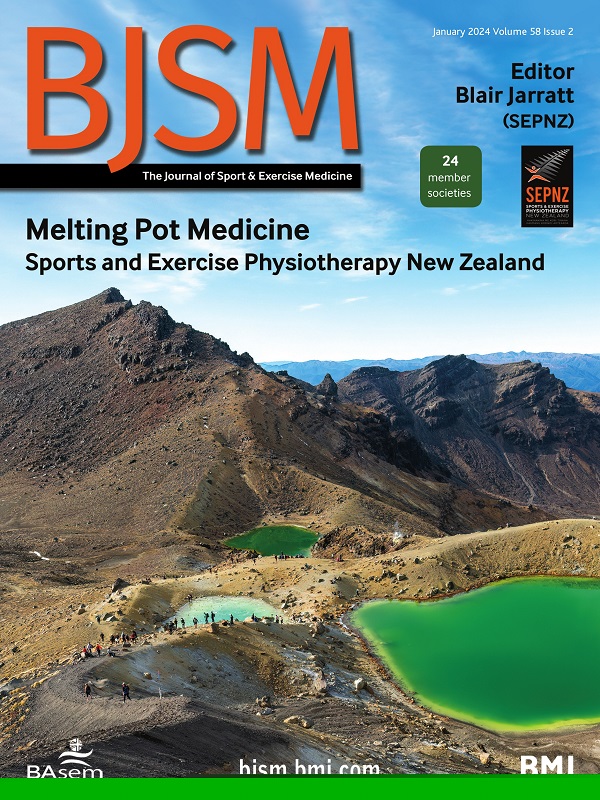安全运动、举报和情境学习:说出来真的安全吗?
IF 16.2
1区 医学
Q1 SPORT SCIENCES
引用次数: 0
摘要
对运动员健康和福祉构成威胁的最紧迫的问题莫过于持续不断的体育虐待危机人们对虐待的类型、流行程度和风险因素的认识越来越高,最近在国际奥委会(IOC)关于体育中的人际暴力和保障的共识声明中,2以及有关各级体育中持续违反诚信的更广泛问题最近,全球媒体的头条往往反映了个人和集体不当行为以及制度化伤害的存在,突出了这些问题的普遍性。体育运动的重大变化依赖于有效的报告流程,在这一流程中,各级体育工作者都可以对违反界限并使人们处于危险之中的行为进行举报。然而,直言不讳的期望,尤其是直言不讳的义务,会造成一种持续的紧张关系:人们并不总觉得这样做足够安全。说出来可以包括提出对安全、福祉或行为等问题的关注,通常以非正式方式发生,而举报是正式报告严重不法行为、不道德行为、严重伤害或不安全行为的过程,通常通过官方渠道,通常是在其他途径失败的情况下通常,“大声疾呼”被认为是运动员必须做的事情,但福利不仅仅是运动员的问题,所有的支持人员在这方面都有责任在整个体育界,包括物理治疗师、心理学家和表演科学家在内的支持人员,通常被称为运动员的随行人员,3经常发现自己处于道德复杂的境地,在这种情况下,挑战决定或质疑权威可能会让人感到个人和专业……本文章由计算机程序翻译,如有差异,请以英文原文为准。
Safe sport, whistleblowing and contextual learning: truly safe to speak up?
Few issues pose a more urgent threat to athlete health and well-being than the ongoing crisis of abuse in sport.1 There has been growing awareness of the types, prevalence and risk factors of abuse, articulated most recently in the International Olympic Committee (IOC) consensus statement on interpersonal violence and safeguarding in sport,2 alongside broader questions concerning persistent integrity breaches across all levels of sport.3 Recently, global media headlines too often reflect the presence of both individual and collective misconduct and institutionalised harm, highlighting the pervasiveness of these issues. Significant change in sport relies on effective reporting processes, where people at all levels of sport can call out behaviour that breaches boundaries and puts people at risk. Yet, an expectation or particularly the obligation to speak up4 creates a persistent tension: people do not always feel safe enough to do so. Speaking up can include raising concerns about issues such as safety, well-being or conduct, often occurring informally, while whistleblowing is the process of formally reporting serious wrongdoing, unethical behaviour, severe harm or unsafe behaviours, typically through official channels, often when other routes have failed.5 Too often, “speaking up” is framed exclusively as something athletes must do, but welfare is not an athlete-only issue, and all support staff have a responsibility in this sphere.6 Across sport, support staff, including physiotherapists, psychologists and performance scientists, often described as the athlete entourage,3 frequently find themselves in ethically complex situations, where challenging decisions or questioning authority can feel personally and professionally …
求助全文
通过发布文献求助,成功后即可免费获取论文全文。
去求助
来源期刊
CiteScore
27.10
自引率
4.90%
发文量
217
审稿时长
3-8 weeks
期刊介绍:
The British Journal of Sports Medicine (BJSM) is a dynamic platform that presents groundbreaking research, thought-provoking reviews, and meaningful discussions on sport and exercise medicine. Our focus encompasses various clinically-relevant aspects such as physiotherapy, physical therapy, and rehabilitation. With an aim to foster innovation, education, and knowledge translation, we strive to bridge the gap between research and practical implementation in the field. Our multi-media approach, including web, print, video, and audio resources, along with our active presence on social media, connects a global community of healthcare professionals dedicated to treating active individuals.

 求助内容:
求助内容: 应助结果提醒方式:
应助结果提醒方式:


